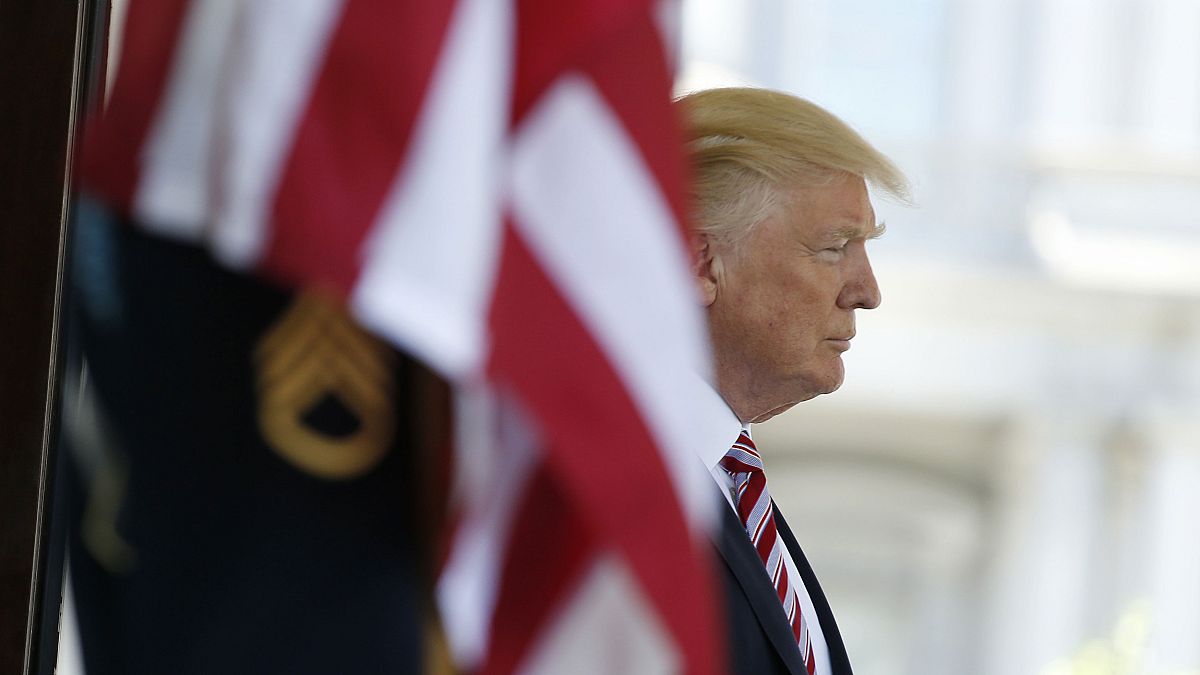Donald Trump has defended giving Russia's foreign minister highly classified information relating to potential terror attacks.
President Donald Trump came under pressure on Tuesday from U.S. lawmakers, including his fellow Republicans, to explain why he shared highly sensitive intelligence information with senior Russian officials at a meeting in the Oval Office last week.
U.S. officials said Trump discussed intelligence about Islamic State with Russian Foreign Minister Sergei Lavrov and Russian Ambassador Sergei Kislyak at last Wednesday’s meeting.
The officials said the information had been supplied by a U.S. ally in the fight against the militant group. The New York Times identified the ally as Israel but two U.S. national security sources said they doubted the report.
The disclosure rocked the administration as it struggled to move past the backlash over Trump’s abrupt firing on May 9 of FBI Director James Comey, whose agency was investigating potential ties between Russia and Trump’s 2016 presidential campaign.
Trump tweeted on Tuesday that he has the right to share information with Russia in trying to get them to be more active in combating Islamic state militants.
As President I wanted to share with Russia (at an openly scheduled W.H. meeting) which I have the absolute right to do, facts pertaining….
— Donald J. Trump (@realDonaldTrump) May 16, 2017
The Senate Intelligence Committee has asked the White House for more information about reports that Trump gave intelligence information to the Russians, a spokeswoman for the panel said.
Congressional investigators are expected to seek copies of any notes taken during the meeting, a congressional source said.
While not unprecedented, it is a rare privilege for a foreign minister to be granted bilateral talks in the Oval Office with a U.S. president.
Moscow’s top diplomat, Lavrov represents Russian foreign policies that are often sharply at odds with U.S. aims in Syria and Europe.
Trump said on Twitter on Tuesday he had an “absolute right” to share facts with Russia so that it can be more active in fighting Islamic State militants.
A U.S. president has the authority to disclose even the most highly classified information at will, but U.S. and allied officials said that by giving information to Russia, Trump had endangered cooperation from an ally that has intelligence on Islamic State.
Controversy over Russia has also laid bare sharp divisions between the White House and U.S. intelligence agencies, which concluded in January that Russia had tried to influence the election in Trump’s favour. Moscow denies that.
During the presidential campaign Trump repeatedly assailed his Democratic rival, Hillary Clinton, for her handling of classified information by email while she was secretary of state. The FBI concluded after an investigation last year that there were no grounds to pursue any charges against Clinton.
Our correspondent in Washington DC said that US Presidents have come under attack for incidents that make Trump’s indiscretions seem far worse.
“Lay back for a second and think about what would have happened if Hillary Clinton, President Hillary Clinton had done this. Republicans would crucify her for, even talking to the Russians about these sensitive matters in the Oval Office. And here’s another thing, Barack Obama was criticised by Republicans for taking his jacket off in the Oval Office. This is unbelievable. I’ve heard from a Republican operative, a campaign manager of John McCain who said that this administration has embraced deception and serial lying and this is unprecedented,” Stefan Grobe said.
But he points out that, even if Washington appears to be in turmoil, Donald Trump still enjoys considerable support.
“As long as Trump has the backing of his core constituencies, core supporters in rural, blue-collar America, then Republicans in Congress will reluctantly stick to him. If once these poll numbers go down, then we’ll see a president who’ll be pretty much isolated within his own party,” Grobe added.
